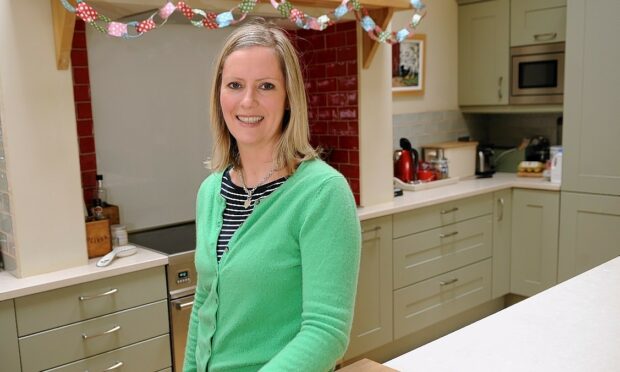Contrary to last month’s billing, I regret to report that Rootfield has not yet gone robotic.
Inevitably, things have run behind on the farm with a multitude of details to see to before getting the robots up and running.
At the time of writing this has included transferring cattle data to a new computer system, fitting the herd with new electronic collars which will feed into said computer system, reinforcing the gates at the robot end of the shed and last but not least, udder clipping.
‘What’s that?’ I asked Nick, aghast.
I was somewhat relieved to learn that it is not quite as barbaric as it sounds and is in fact rather more udder ‘grooming’, involving a bit of hair removal so that the robot’s laser beams can more easily detect and latch onto each quarter.
Having had no internet for the past five weeks and a burst water main to contend with after a hole was accidentally drilled into a pipe while plumbing in one of the robots, the robotization of Rootfield has not exactly gone as smoothly – or as economically – as Nick would have liked.
That said, the process has only overrun by a week so far and all being well the Lely engineers will have connected the robots and have them up and running by the time you read this.
And in their experience, which is considerable given Lely’s position as global market leader in the field, it usually takes the cows – and their humans – between two to four weeks to settle into robotic milking. (I will be able to report as to the accuracy of this bedding in period at Rootfield better next month.)
Elsewhere on the farm, the first cut of silage is in thanks to that incredible spell of hot sunny weather at the end of May and whilst it is not a huge crop, Nick says it is of excellent quality which will have a positive impact on the cows’ nutrition and general condition.
On the flip side, the wet start to the month has delayed the spraying of his spring wheat and barley which obviously then hinders the growth cycle.
The on-farm processing arm of the business continues to increase in terms of volume and variety of production, especially with the advent of the Scottish soft fruits season. Rosie and the team are busy making our popular summer flavours of ice cream (strawberry), frozen yoghurt (bramble) and sorbets (our raspberry sorbet is a best-seller).
Meanwhile, I’m currently trying to dream up some original new summer flavours to help differentiate our brand from our competitors and bring us back to our founding principles, namely producing artisan gelato-style ice cream with our own milk and fresh local ingredients wherever possible.
If you’ve got any suggestions please let me know at Facebook.com/BlackIsleDairy.
It was always my intention (as creative and foodie influence behind our dairy processing arm) to have a small range of popular core flavours – pure milk, vanilla, chocolate, pistachio, honeycomb, coffee etc – available year round and a rotation of seasonal flavours, to reflect the local produce available and to compliment the changing weather and landscape outside.
The problem, if you can call it one, is that our lovely loyal customers have firm favourites and while most understand that not all of the 20-plus flavours we make are available all of the time, a few get quite put out when their preferred gelato is not on sale either at our flagship counter at Daviot or now at my brother’s new business venture, Milk Bar, in Inverness.
Naturally, the last thing we want is to disappoint our customers but at the same time I’m conscious of two concerning factors.
The first is that we are moving away from our original concept and the second is the fact that there are now a handful of ice cream parlours in the Highland area all selling similar flavours to us. We always use the highest quality ingredients we can, but clearly we need to use more speciality and seasonal produce to make us niche again.
We are lucky that because we are small, we can change what we are doing relatively quickly but the risk is whether our customer base will be happy with this change…
I guess there’s only one way to find out and with our two biggest summer events in August (Black Isle Show and the Highland Field Sports Day at Moy), we will have the perfect launch platform for speciality seasonal or ‘limited edition’ flavours.
My brother recently enjoyed a bumper day with our Caterpod at the well attended NSA Highland Sheep event at Kinnahaird and is looking forward to a busy summer season on the road as well as at his Inverness base.
On the home front, the girls and I are eagerly anticipating the summer holidays and desperately hoping for more sunshine to make the most of our abundant natural surroundings, visits to grandparents and day trips with friends.
But the end of another school year for Daisy always makes me a little melancholy; I can hardly believe how fast she is growing up. The long summer break gives us time to pause and Mollie and I will love having her effervescent and sunny company all day.
We are also very much looking forward to a family week away during the school break, which I convinced Nick to take one miserable sleety evening back in January.
Of course, he hadn’t realised he would be on the cusp of robotizing the farm at the time of booking, but he’s hoping the cows and Duncan will have got the hang of it by the time we go. (Fingers crossed.)
NEXT MONTH: the last 3am milking
* Rootfield Farm is on the Black Isle, 10 miles north of Inverness, where Jo lives with husband Nick, a fourth-generation dairy farmer, their daughters Daisy and Mollie, and 150 cows
